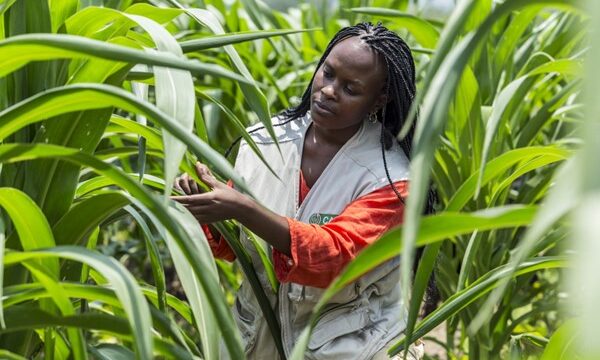Pity the poor editor on BBC’s news programme “Breakfast” (11 jan 2011) subtitling, as Professor Robert Winston and others discussed the possibility of gender selection to "complete your family in the way you desire" i.e. to finally achieve that longed for girl or boy.
Throughout the discussion the text editor had kept up admirably, coping with explanations of these gender selection techniques:
- at fertilisation (by enriching for male sperm)
- pre-implantation (by removing a cell from a fertilised embryo to check the sex.
(Both techniques are tried and tested. Sperm enrichment is used for cattle breeding and pre-implantation tests are used to select healthy embryos without a gender-linked genetic defect)
In vivo fertilisation was rendered accurately too, which just shows how much the public has come to know and understand about IVF since it was first introduced all those years ago.
Then Professor Winston mentioned in passing “epigenetic influences” which was transcribed rapidly onto my TV screen as “EDGE THE GENETIC”!
Clearly the editor hadn’t a clue. So I’ve decided to define (& explain) for you the term “epigenetic” so that you will. Along the way, I hope, you emerge fascinated…
EPIGENETICS
“Epigenetics refers to “heritable traits that do not involve changes to the underlying DNA sequence”.
The molecular basis of these changes is activation or silencing of genes without changes to the DNA sequence (the "genome"). This is achieved directly through methylation of the DNA OR indirectly through RNA transcripts & modification of histone proteins which bind to the DNA. It is these modifications which explain how, in a multi-cellular organism, differentiated cells express only the genes that are necessary for their own activity, whilst starting out as cells with a full complement of active genes prior to differentiation.
For years epigenetic changes were not thought to be passed on after the death of the individual but this proved incorrect as evidence grew that environmental factors like diet, stress, childhood smoking1, and prenatal nutrition2 could influence the next (& the next) generation’s disease patterns or even the sex ratio at birth. This is termed epigenetic inheritance. (For a good review see3 )
From grandparent to grandchild: epigenetic inheritance
Diet (specifically famine/glut cycles) is the classic example of transgenerational epigenetic inheritance influencing the disease risks for descendants. How was this link established?
In 19th century Sweden, there was a pattern of bad and good harvests which meant that children experienced either famine or plentiful food (when they’d overeat). If these children were in the slow growth period (SGP) which occurs preadolescence, then environmental factors like food supply have a larger impact on their bodies. Knowing this, the 2002 Överkalix study 4 looked at the descendants of children, born in 1890, 1905 and 1920, who experienced famine or glut during SGP. [SGP was determined from the growth curves during childhood & set at 8-10 years (girls) and 9-12 years (boys)]. This & subsequent studies5 revealed that the food supply during SGP of both grandparent and parent affected the descendant’s disease risk but only through the male line.
What mattered was the food supply of your paternal grandparents!
If the paternal grandfather’s food was plentiful, then diabetes mortality in the grandchildren increased; if the father’s food supply was poor then mortality from cardiovascular disease was reduced in his children. If the paternal grandmother had a good food supply during SGP (or experienced famine while in the womb) then the granddaughters led shorter lives on average.
Amazing what you can find out isn’t it?
For current thinking on the actual mechanism, just search with the term “Nutrigenomics” or read 6
Epigenetic influences on sex ratio
Returning to that BBC programme.
Epigenetic came up in the conversation because an interviewer asked if there are techniques to influence the sex of your child apart from the two “invasive ones” discussed.
The answer from Professor Winston was that since Roman times, people had tried and failed i.e. from douches to diet, nothing worked. However he stated that at the population level, war was known to influence the sex-ratio at birth. He gave the example of World War I, where a large number of boys were born afterwards, “perhaps to redress the losses incurred in battle”?7. (NB the current sex ratio at birth in the UK is in the order of 1.07 boys: girls). This was he said “epigenetic” and not well understood.
Having looked at our Global Health database records, its clear that there is better understanding of epigenetics for environmental factors like temperature8 , exposure to chemicals or parental occupation, all of which have been linked to sex ratio at birth.
The participants went on to discuss if choosing the sex of your child could skew the population. The subtext being that China and India through deliberate policy &/or cultural attitude, have an imbalance where male children far outnumber females. Both countries traditionally rely on males to look after the elderly or work the land. Here in the UK we were assured by Professor Winston that there was no evidence that this “skew” would appear.
And all of this discussion on “the desire for parents to balance their families” is because Victoria Beckham had announced she was pregnant again and speculation was rife that week if this one would be another boy!
Listed below are the articles I cite plus the very latest research in this field on longevity9 and on carcinogenesis10 on Global Health.
Illustrating the expanding role epigenetics is playing in public health.
References
- Sex-specific, male-line transgenerational responses in humans Pembrey M.E. et al European Journal of Human Genetics (2006) 14, 159–166. (ALSPAC, longitudinal study in UK)
- Effect of supplemental folic acid in pregnancy on childhood asthma: a prospective birth cohort study. Whitrow, M. J.; Moore, V. M.; Rumbold, A. R.; Davies, M. J.; American Journal of Epidemiology (2009) 170 , 1486-1493
- Epigenetics and Human Health: Linking Hereditary, Environmental and Nutritional Aspects. Editor: Alexander G. Haslberger. (2010). BOOK. Online ISBN: 9783527628384
- Cardiovascular and diabetes mortality determined by nutrition during parents' and grandparents' slow growth period. Kaati, G.; Bygren, L. O.; Edvinsson, S. European Journal of Human Genetics, 2002, 10, 682-688
- Transgenerational response to nutrition, early life circumstances and longevity.Kaati G, Bygren LO, Pembrey M, Sjöström M. Eur J Hum Genet. (2007) 15, 784-90. (One of several papers, beginning in 2002, linked to the Overkalix longitudinal study in Sweden)
- Special Issue: Nutrigenomics, Biotechnology Journal, 2010, 5, 905-993
The variations of human sex ratio at birth during and after wars, and their potential explanations. Jamesa W. H. Journal of Theoretical Biology. (2009) 257, 116-123 - Temperature-related birth sex ratio bias in historical Sami: warm years bring more sons. Samuli Helle, Samuli Helama & Jukka Jokela. Biol. Lett. (2008) 4, 60–62
- Nutritional influence on epigenetics and effects on longevity. Niculescu, M. D.; Lupu, D. S. Current Opinion in Clinical Nutrition and Metabolic Care (2011) 14 35-40
- An emerging role for epigenetic dysregulation in arsenic toxicity and carcinogenesis. Ren, X. F. et al Environmental Health Perspectives 2011 Vol. 119 No. 1 pp. 11-19
2 Comments
Leave a Reply
Related News & Blogs
Strengthening the potato value chain in the Kurdistan Region of Iraq
On 30th May, we marked the International Day of Potato. In this blog, CABI’s Crop Health Advisor Anna Wood provides an update on a five-year project led by CABI to strengthen the potato value chain in the Kurdistan Region of Iraq. An ambitious five-yea…
3 June 2025





A simpler definition from a reader:
Epigenetics refers to DNA and chromatin modifications that persist from one cell division to the next despite a lack of change in the underlying DNA sequence. Thanks a lot…
It does deserve a better understanding. Similar to a dog DNA test that traces the grandparents of the mixed breeds to find out the characteristics of a ‘mutt’ so the proper training and food be given, plus to discover what the medical issues may be – the importance of doing this for humans cannot be overemphasized. It can help a lot of people to discover more about themselves, especially if they have certain health concern.